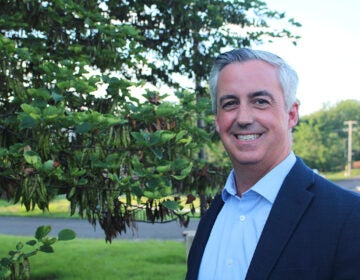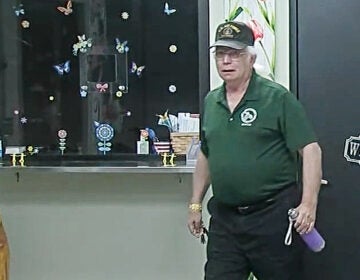Wolf’s death penalty moratorium in Pa. draws sharp reactions, pro and con
Pennsylvania Governor Tom Wolf has pushed the “pause” button on executions in the state. Wolf called his move Friday a “moratorium” on a “flawed system.
Wolf said he is waiting for the results of a study of capital punishment in Pennsylvania.
The governor cited concerns over how executions are handled and about cases where innocent people were wrongly condemned.
Northampton County District Attorney John Morganelli says the governor does not have the long-term power to halt executions.
“At some point the process has to be carried out,” he said. “The governor does not have the power to overturn a sentence that was imposed by a jury that has been upheld by the Pennsylvania Supreme Court.”
“I like Governor Wolf, but he’s not a judge and he can’t substitute his judgment for that of the legislature and the courts,” Morganelli said.
The Pennsylvania District Attorneys Association says Wolf is ignoring the law. State rules allow death sentences to be imposed for first-degree murder.
Richard Long, association executive director, said the governor’s decision is “troubling.”
“The governor conferred with anti-death penalty advocates and the defense bar in reaching his decision to do this, yet, but there was no engagement of prosecutors or the victims’ families that are so impacted by the governor’s decision,” Long said.
Long said current death penalty prosecutions and sentencing deliberations that are under way right now should continue to move forward.
Meanwhile, other groups, including, Pennsylvanians for Alternatives to the Death Penalty, applaud the governor’s decision.
Marc Bookman, who leads the death-penalty resource group Atlantic Center for Capital Representation, says Pennsylvania has the highest death-penalty reversal rate in the country.
“At this point the country is, frankly, moving away from this punishment. We’re at an all time, or a 40-year low in death sentences; we are at a 20-year low in executions,” Bookman said.
There are 186 people on death row in Pennsylvania, but only three people have been executed in the state since 1978. Terrance Williams was scheduled to die next month for a 1984 murder in Philadelphia. Wolf’s action puts that on hold.
The state Advisory Commission on Capital Punishment is expected to issue its results this spring.
But Long said: “The deck is stacked with anti-death penalty proponents.”
By email ,Wolf spokesman Jeffrey Sheridan wrote, “The commission is a bi-partisan commission created by the state Senate and the DA’s Association has a seat on that commission. The governor has great sympathy for the family of victims and his action does not change sentencing laws, nor does it change the confinement or conditions for death row inmates. His decision is about a system that is flawed, ineffective, and costly.”
Most polls in Pennsylvania suggest that the majority of commonwealth residents support the death penalty.
“I think those polls are deceptive and improperly worded,” Bookman said.
“When people are asked, do you support the death penalty, generally about 60 percent — sometimes even higher — say ‘yes.’ But when they are asked the right question, which is: ‘Do you prefer the death penalty or life without the possibility of parole with restitution to the victims,’ then it’s about 50-50.”
For first-degree murder convictions in Pennsylvania, life without parole is the only option to a death sentence.
Delaware is among the 32 states with capital punishment but New Jersey is not.
Ray Krone is membership director for Witness to Innocence, a network of death row survivors. Krone says he sat in jail and prison for 10 years, three months and eight days in Arizona before DNA evidence cleared him in 2002.
Krone grew up in Dover, Pa., what he called a “conservative” community in York County. He used to support the death penalty.
“Believed in the justice system, believed in the death penalty because it was for the ‘worst of the worst,’ we were told,” Krone said. “Of course after what happened to me and things in the system, they don’t always get it right.”
WHYY is your source for fact-based, in-depth journalism and information. As a nonprofit organization, we rely on financial support from readers like you. Please give today.




